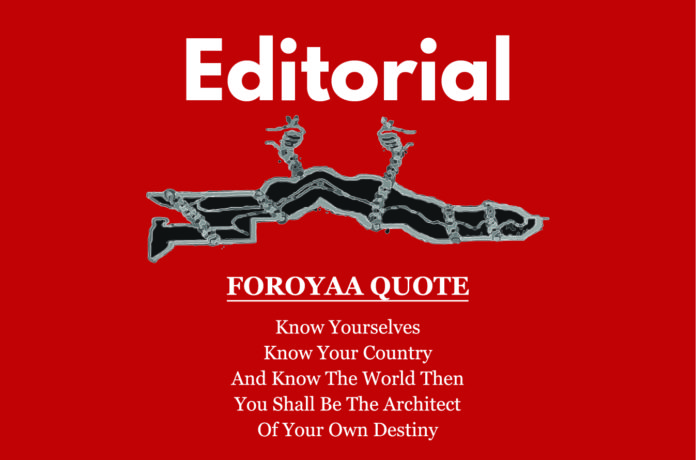Foroyaa appointed two journalists and directed them to convey their interest in becoming reporters on matters concerned with the state house. The reason for this is simple. Executive power resides in the state house. Hence the state house should have relation with all media houses in order to receive information from the public through their reports and editorials as well as disseminate policies aimed at addressing the needs and aspirations of the people.
Instead of struggling to gain access, media houses are availing access to their establishments at no cost to the state house. Interestingly enough the state house is not satisfied that the journalists with a press card from a registered media establishment and a citizen for that matter should have access to the state house without being subjected to background check, whatever that means. This means presumption of guilt before being proven innocent through interrogation. The letter received by one of the reporters reads:
“I am glad to inform you that your application for the State House Press Pass has been progressed to the next stage, which involves background checks by the security services at the presidency. Thus, you are invited to the State House in Banjul for an interview on Thursday, 4th April 2019, at 10:00 AM.
“The staff of the Directorate of Press and Public Relations would be at hand to provide assistance. Note that all applicants MUST undergo background checks to qualify for a permanent State House Regular Press Pass in accordance with the extant guidelines of our Media Accreditation Policy (which was shared with you earlier)
“Please bring along original copies of your ID Cards, Letter of Assignment, and a passport size photograph. Make sure to arrive at least 15 minutes before.”
Would any self-respecting media house or media practitioner accept such conditionality in today’s world especially in the envisaged new Gambia? The question is begging for an answer from the public. As far as Foroyaa is concerned its reporters will never be directed to subject themselves to such programme of censorship. We will continue to await a new spilt of trust and confidence to be rejuvenated and characterise the relation between the transitional administration and the media that helped to effect the change, bearing all the brunt engendered by the threats of impunity.


















